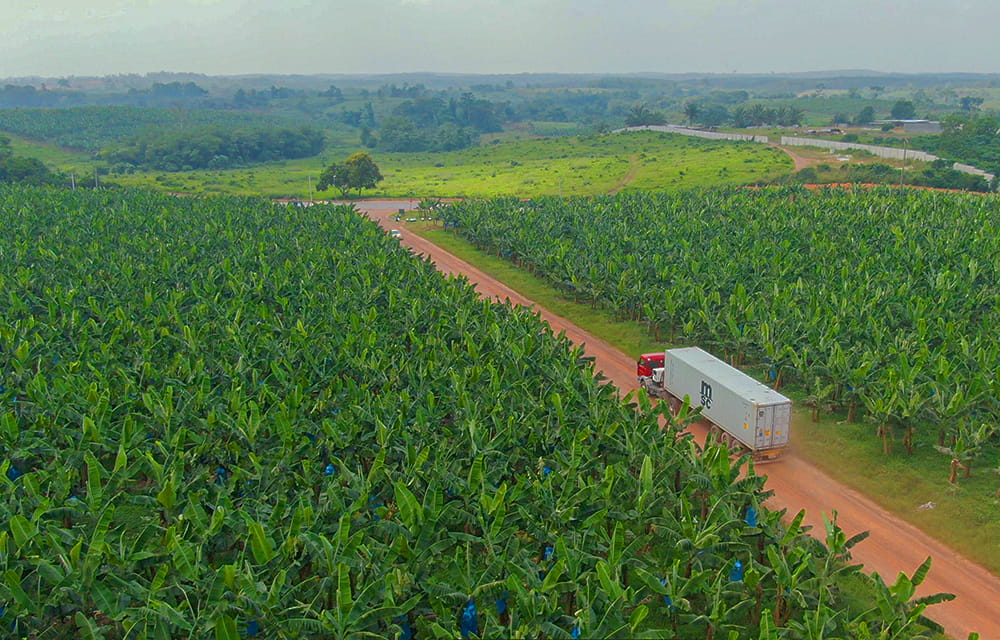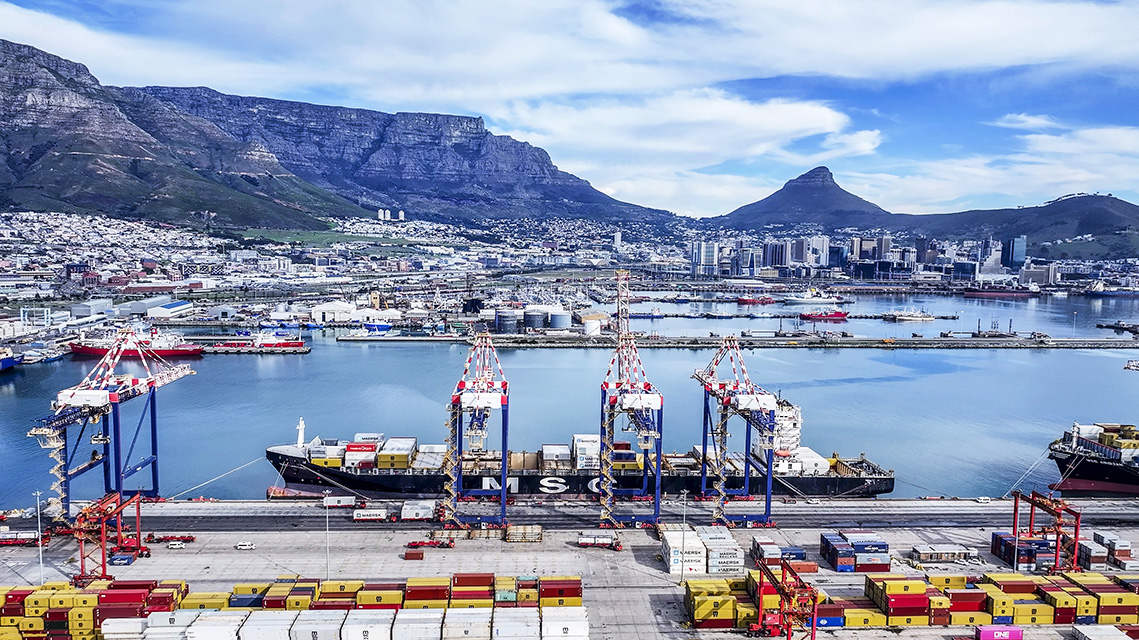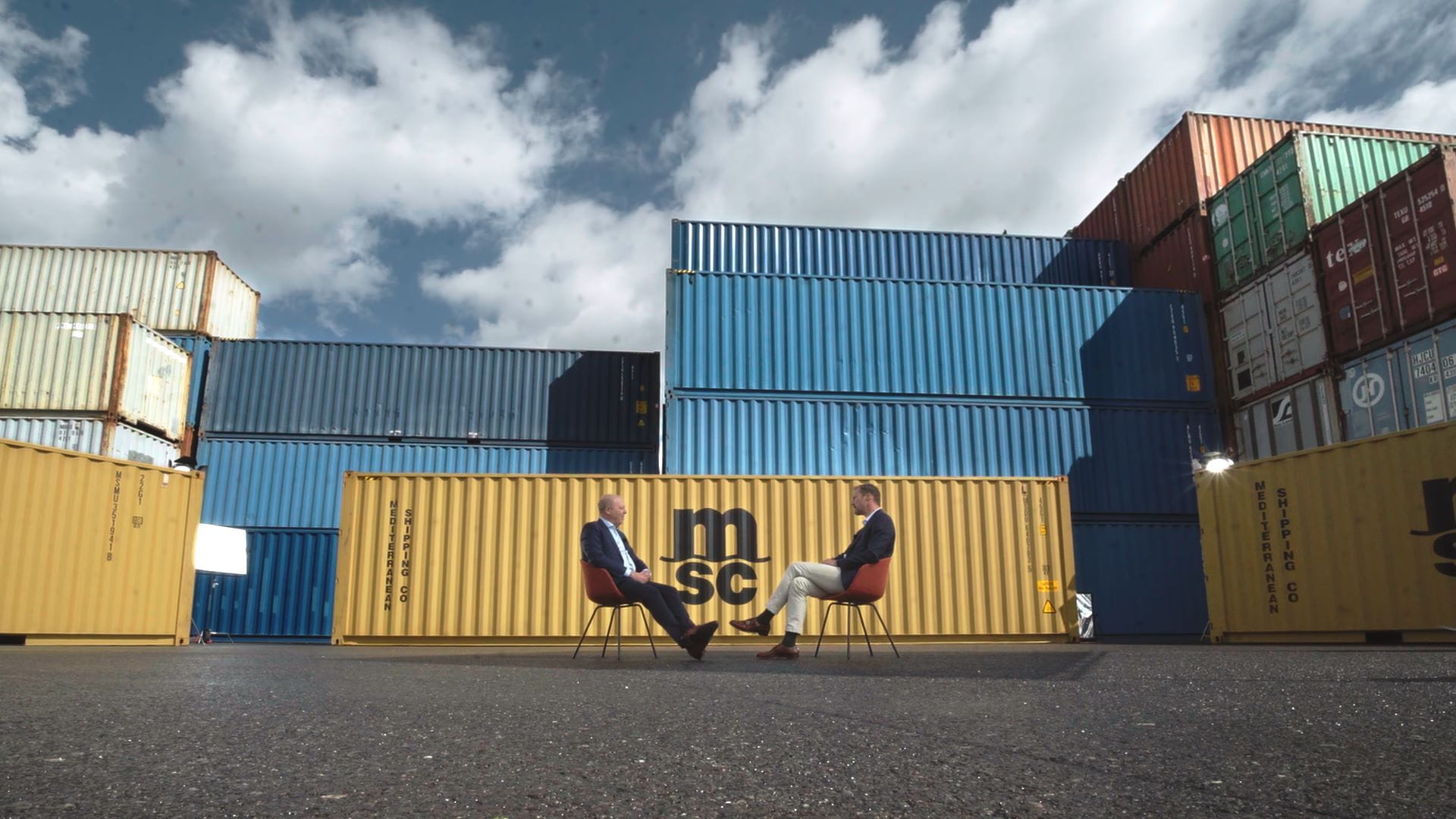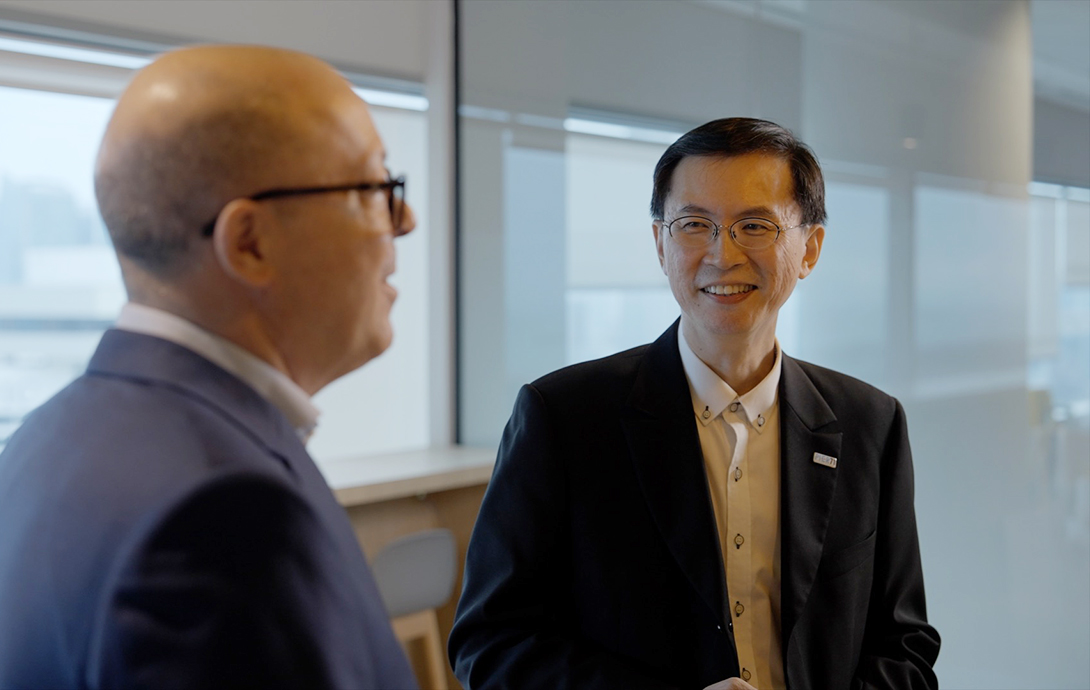
/pt/newsroom/stories/digital/2024/msc-digital-talks-ep-10-digital-learnings-from-the-world-s-busiest-transhipment-hub
MSC Digital Talks Ep. 10: Digital Learnings from the World’s Busiest Transhipment Hub
15/05/2024
How is digitalization transforming the world’s largest transhipment port? For our #MSCDigitalTalks series, MSC’s CDIO André Simha meets industry experts and leaders to discuss the hottest topics in shipping. In this episode, he speaks to Kenneth Lim, Assistant Chief Executive (Industry & Transformation) of the Maritime and Port Authority of Singapore (MPA), to find out.
Kenneth Lim has over 25 years of technology-related experience in the seaport, logistics, IT and energy industries. He regularly speaks at conferences and events advocating digitalization, and in 2019 won the ‘Supply Chain Asia - Visionary of the Year’ award. André met with Kenneth during Singapore Maritime Week 2024.
Digitalization: a “survival strategy” and a “force multiplier” for the future
In the video, Kenneth explains why innovating and adopting digital tools and processes is essential to Singapore’s survival. As the world’s busiest transhipment port, the country must digitalize in order to absorb ever-increasing cargo volumes.
André and Kenneth discuss key projects such as the ongoing development of Tuas Port, the world’s largest automated container terminal, and Singapore’s Green and Digital Shipping Corridor initiative to accelerate digitalization and decarbonization. They also underscore the importance of building strong innovation ecosystems, including technology providers, start-ups and recent graduates.
"
To Singapore, we view digitalization as part of the essential pathway to our survival strategy. Because we are a small country, companies can use digitalization to start trading with the rest of the world. I think digitalization is also a force multiplier […] because we need to have the tools to provide efficiency and proficiency in terms of handling containers.
"
Our #MSCDigitalTalks video series explores shipping’s digital transformation through conversations with industry leaders and experts.
Follow André Simha and #MSCDigitalTalks on LinkedIn to watch the latest episodes and share your ideas.
Read Episode 10 Transcript
INTRODUCTION
Andre Simha: Kenneth, I'm here for Singapore Maritime Week and *DCSA board meetings, and I thought it was a great opportunity to sit with you in your role of Assistant Chief Executive of *MPA to talk about digitalization in shipping, one of my favorite topics. So, thank you so much for joining us.
Kenneth Lim: Thank you so much, André, and welcome to Singapore and Singapore Maritime Week.
SINGAPORE: SMALL SIZE, BIG IMPACT (00:50)
Andre Simha: Singapore, one of the smallest countries in Asia, yet one of the biggest transshipment hubs. Can you tell us a little bit more about why that is?
Kenneth Lim: You know, Singapore is geographically limited in size. We are about 710km², very small, and also about five million in population. But on the other hand, we are situated in a strategic location in Asia. So, I think about 30% of the global trade actually passes through this part of the region. We have a very big ambition to serve the global supply chain. Here we are becoming a big transshipment hub, a big bunkering hub, as well as an attractive international maritime centre.
Andre Simha: And that's a lot for such a small city-country. It's funny because I remember when we inaugurated our offices here in 1996, our first regional office actually, here in Singapore and we had I think four people. Today we have over two hundred people with two offices, the regional and our agency office. And it's incredible to see how things have grown, how the city has developed and particularly the digital impact I think overall is very impressive. Considering those limitations, how has digitalization helped you to grow and thrive?
Kenneth Lim: You know, André, many may think that digitalization is a ‘good to have’ tool. But to Singapore, we view digitalization as part of the essential pathway to our survival strategy. Let me explain why.
Because we are a small country, and many of these businesses also have very limited domestic demand, companies can use digitalization to start trading with the rest of the world.
Secondly, I think digitalization is also a force multiplier, right? Because while investing into our Tuas port, we need to have the tools to provide efficiency and proficiency in terms of handling containers.
Andre Simha: I love your expression that it's a survival strategy. When we look at the growing population, we look at the growing volumes of goods to be carried and of course, to be transshipped, as you mentioned, the 30%. How do we cope with this? The container was invented in the 50s. That hasn't changed much. Smart containers, perhaps. The vessels aren't going to grow much larger, in my opinion. So, digitalization is really one of the only ways to absorb all that volume. So, I think this is something that, as MSC, we've recognized as a priority. And part of why we're having this conversation today.
DIGITALIZATION - KEY TO SINGAPORE'S ‘GREEN AND DIGITAL CORRIDOR’ (03:55)
Andre Simha: Kenneth, can you perhaps give us some examples of digital projects that are very specific to Singapore?
Kenneth Lim: Sure, in the area of smart ports we actually get our researchers to come to model the digital twin. In fact, we set up a center called the Centre for Next Generation Ports. So, they use simulation and optimization simultaneously so they can model the digital twin of the 65 million TEUs. So, in fact Tuas port is going to be a fully automated port terminal. So, we have done many of these auto-guided vehicles, and of course, researchers are also now using robotics to try coning and deconning automatically. And lately we have just rolled out e-bunkering or *eBL, much of this documentation. And we also think that it should not only be within the port waters but also connected to other ports, which is why we are also using digitalization to pioneer the Green and Digital Corridor as well.
Andre Simha: A very important topic, and it was on my list of questions to you. I understand the concept, but can you explain a little bit more about the project and the impact it has on the trade.
Kenneth Lim: Yes, we know that the whole decarbonization journey takes time. It needs a transition period. And therefore, it is important to focus on pathways from port to port, how a net-zero fuel can actually be supplied, and then how the vessel could then take the cargo all the way to the next port. So, we have added not just green or digital by itself, but combining both of them, green and digital, so that all your documentation, your paper flow, can all be digitalized. You can make use of AI or digitalization to do voyage planning or voyage optimization.
Andre Simha: You mentioned the eBL, e-documentation, digitalization of documents. So that's all part of this project, I guess.
Kenneth Lim: That's right. Under the digital corridor we want to make sure that the shipping companies can be facilitated with paperless documentation. So, the ebill of lading, your paperless port clearance systems and documentation should all be digitalized.
Andre Simha: Everywhere.
Kenneth Lim: Everywhere!
HOW A STRONG ECOSYSTEM HELPS INNOVATION BLOOM (06:33)
Andre Simha: So, the way I see it, for digitalization to have the impact that that we think it should have, that we want it to have, we talk about ecosystems and data sharing, collaboration. How do you see that from your perspective?
Kenneth Lim: I totally agree with you that the ecosystem is a very important piece. In fact, when I’m thinking back to six years ago when I joined MPA, that was my task to create this innovation ecosystem, which is when I started to look at how we piece together this innovation ecosystem. Because every company and every organization have some pain points, challenge statements. And these challenge statements can be solved today with technology providers. Or they could actually be solved through a start-up whose technology is emerging and needs to scale. One more piece is actually talent from schools and universities, polytechnics. They could actually look at the challenge statement and look at it from a different perspective. And in fact, after forming all these different parts of the ecosystem, it’s like a piece of land is being fertile and therefore you can allow different flowers to bloom. In Chinese there is a word to say “bǎi huā qí fàng”, which is to let a hundred flowers bloom in this fertile land of innovation ecosystem.
Andre Simha: That's very poetic and thank you for sharing that with us. I'll try and remember that. Thank you so much for having joined us today on this Digital Talk. I think your insights are super interesting and I really appreciated the time together.
Kenneth Lim: Thank you so much.
*DCSA: Digital Container Shipping Association
*MPA: Maritime and Port Authority of Singapore
*eBL: Electronic Bill of Lading




